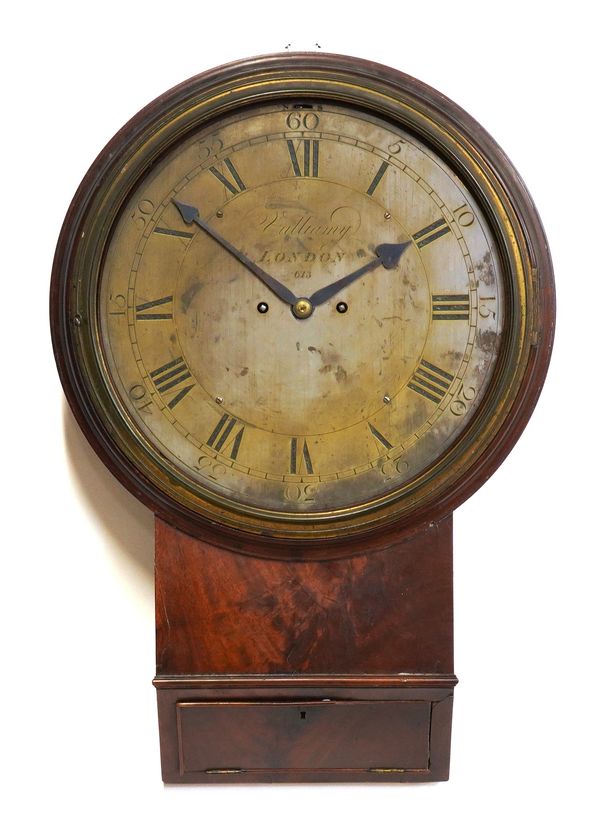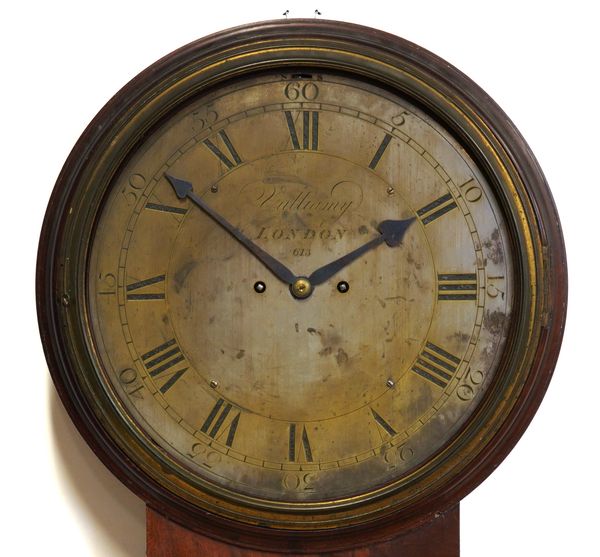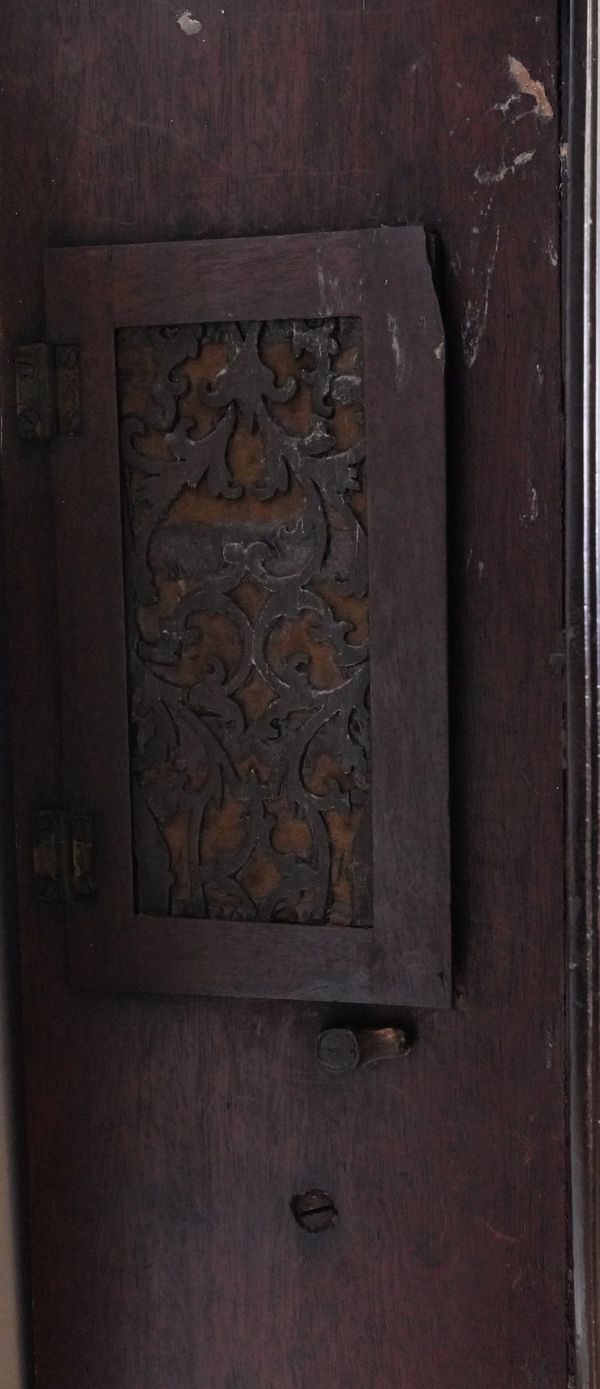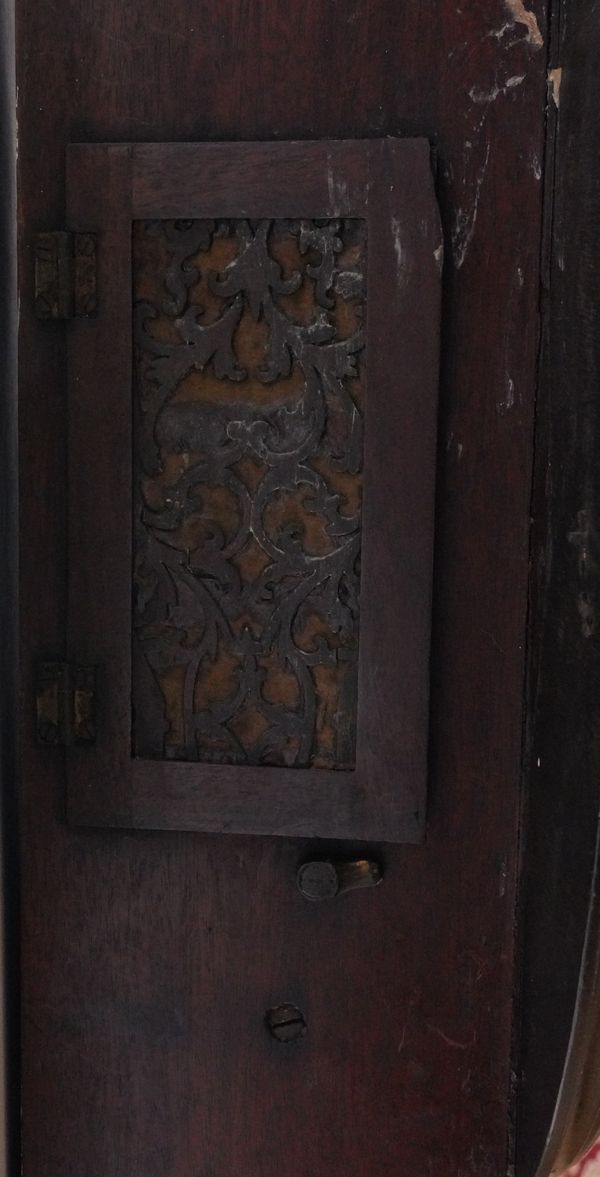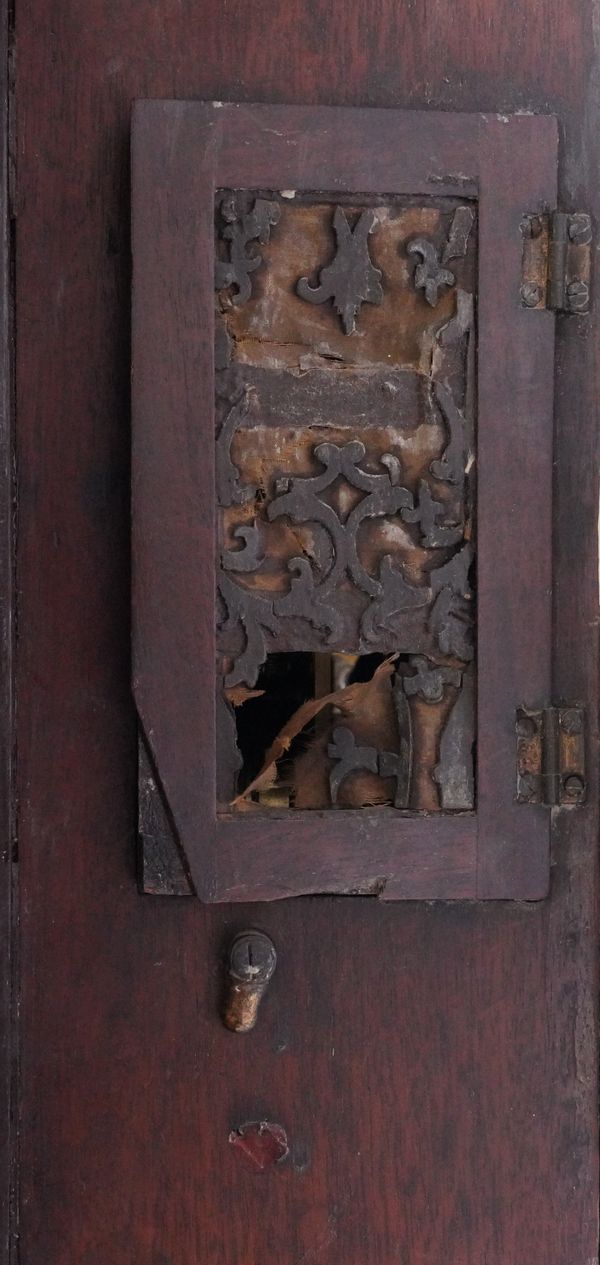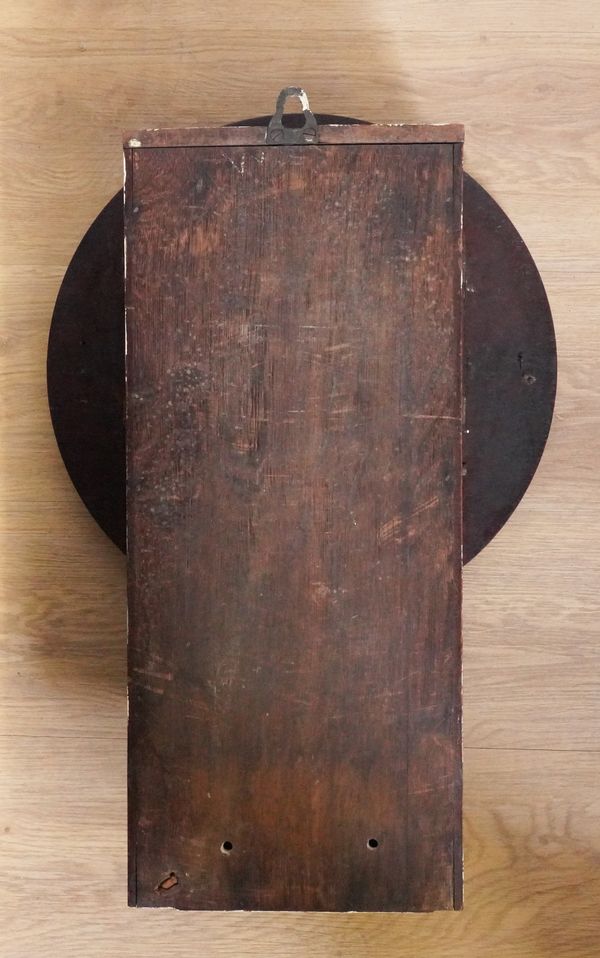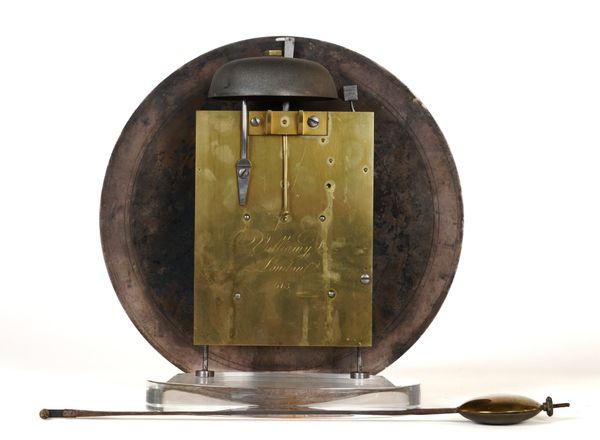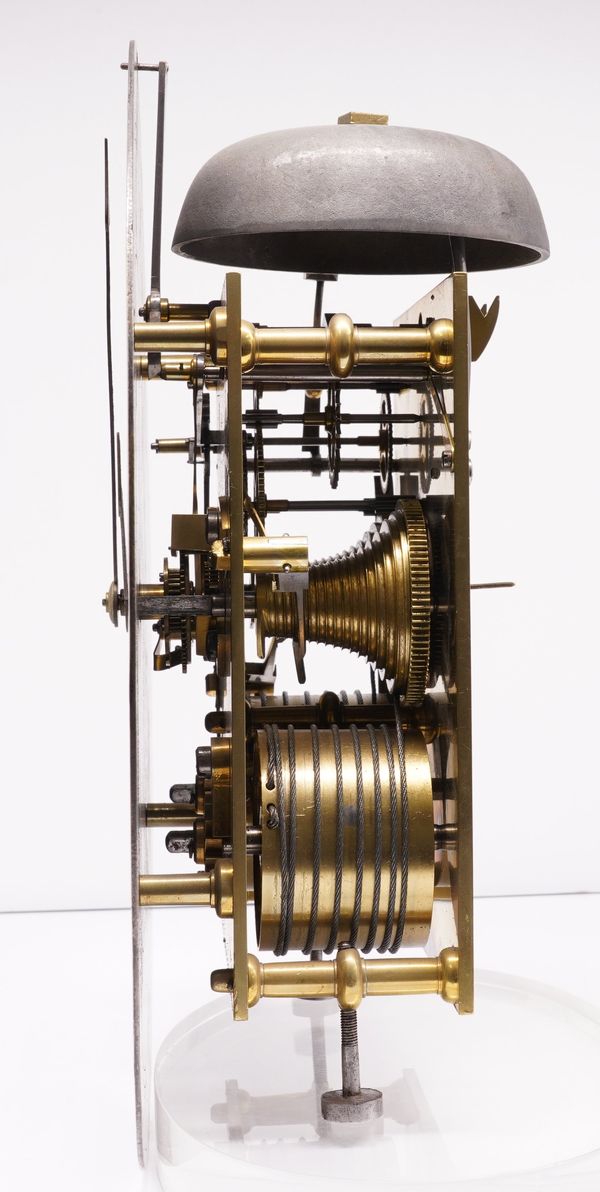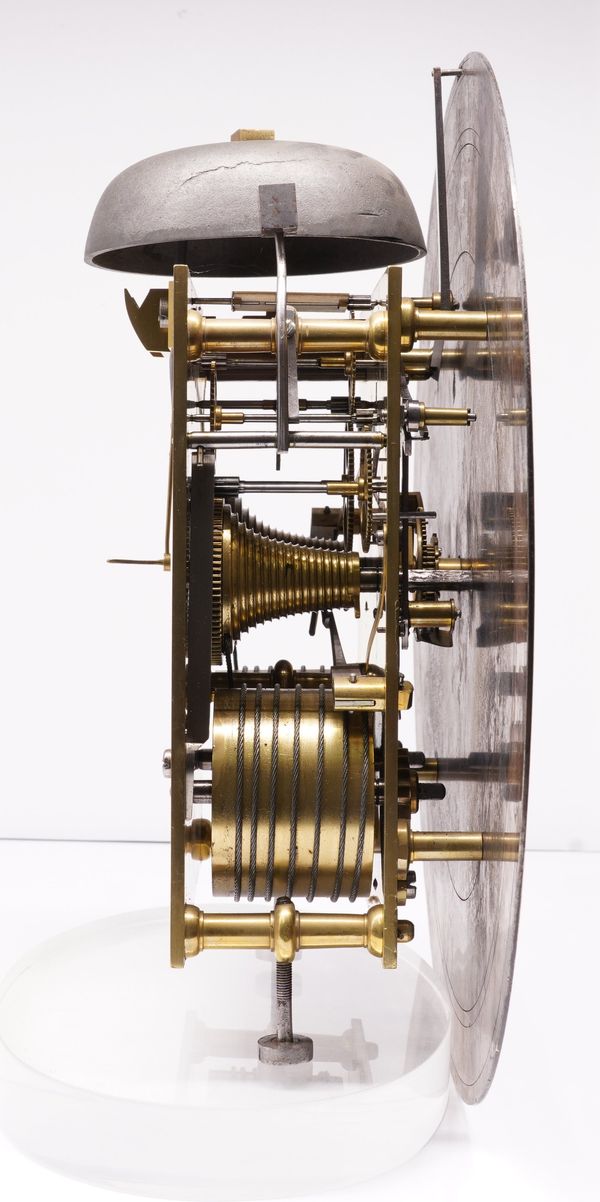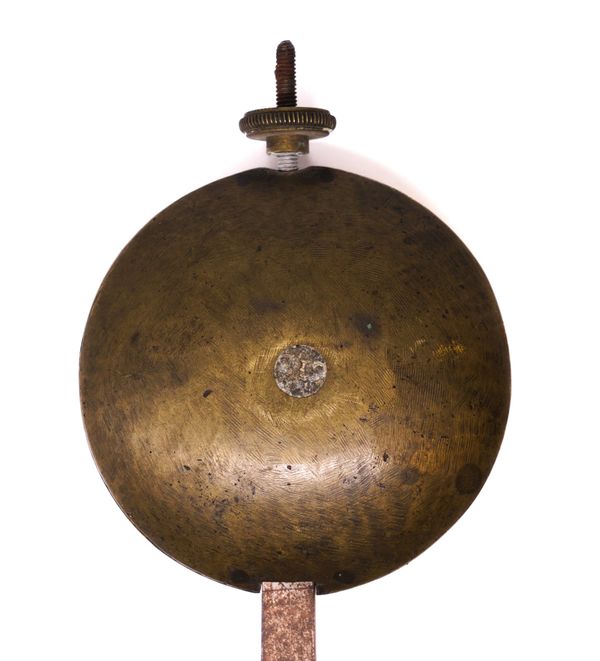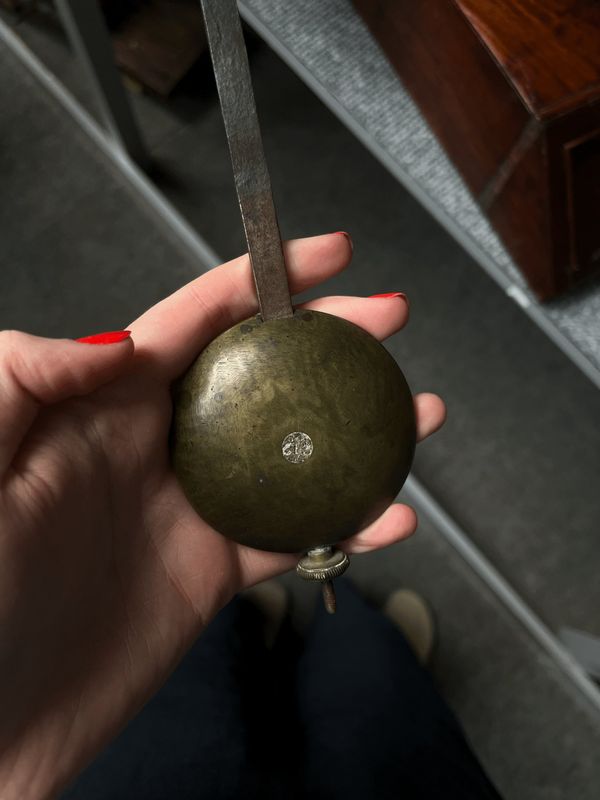VULLIAMY No 613, A LATE GEORGE III MAHOGANY STRIKING DROP-DIAL WALL CLOCK
The case probably by Rich, Lincoln’s Inn Fields, London, Circa 1817
| Estimate: | £5,000 - £8,000 |
| Hammer price: | £16,000 |
The case with a convex brass bezel above moulded surround, above well figured apron and inset panel door, the sides each with a pierced door panel, the 12in circular silvered dial inscribed Vulliamy, LONDON, 613, with blued steel spade hands, Roman chapters and Arabic numerals to the outer five-minute ring, the rectangular shaped movement, signed Vulliamy London 613, with five knopped and ringed pillars, semi deadbeat escapement, twin wire gut fusees, striking the hour on a bell, with its original steel rod pendulum and brass bob
57cm high
See Roger Smith, Vulliamy Clock Numbering, Antiquarian Horology, Number Five, Vol. 21, Autumn 1994, pages 427-429. The graph indicates a date of around 1817 for No. 613.
The Vulliamy dynasty of clockmakers began with François Justin Vulliamy (d. 1797), a Swiss emigrée who moved to London around 1730. He married Benjamin Gray's daughter and was his partner until Gray's death in 1764, when he succeeded him. Gray had been appointed Royal Watchmaker in 1742, so continuing working with his son Benjamin Vulliamy (d. 1811) they were appointed Clockmakers to the King in 1772. The business and Royal Patronage continued with the next generation Benjamin Lewis Vulliamy (d. 1854).
Condition report
The clock requires some sympathetic restoration. The movement and dial are in original condition. They will require a clean and service. The brass is showing through the dial silvering and is stained, so ideally should be cleaned and resilvered. The movement is dirty, the oil sinks black. It has been poorly rebushed previously and has a couple of light scratches to the backplate.
The case will require some careful work. Some cock beading around the trunk door is missing. The lock is present. The return beading to the left and right hand side are lost. Two small veneer losses to the underside of teh base on right and left side. Old paint marks. Some fillet loss to each side door, later fret insets now damaged. The front figured veneer panel appears to be slightly lifting and has a section reglued poorly to the bottom left. The brass bezel is tarnished and has lost its lock. The pendulum is in good order. There is no key.
